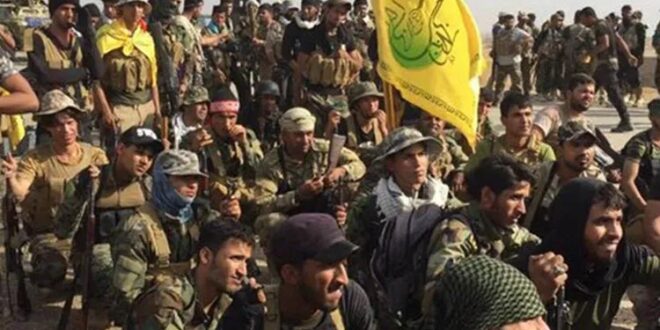The fifth election since the overthrow of Saddam Hussein in 2003 generated a record-low turnout of just 41 percent. However, the results contained some surprises.
While the elections took place about three weeks ago, the Pro-Iranian groups continue to denounce the results from Iraq’s elections as “manipulation” and a “scam.” That’s because the biggest losers were the pro-Iranian parties with links to the armed groups that make up the Iranian proxy militias known as Hashd al-Shaabi or Popular Mobilization Forces (PMF).
The Fateh (Conquest) Alliance, previously the second-largest bloc in parliament, suffered a sharp decline from 48 to about a dozen of the parliament’s 329 seats, according to the reported results.
“We will appeal against the results and we reject them,” said a joint statement by several parties, including the Fateh Alliance, back in mid-October.
“We will take all available measures to prevent the manipulation of votes,” added the statement.
The Fatah Alliance includes the Badr Organisation, the Al-Sadiqoun Bloc, which is the political wing of Asa’ib Ahl al-Haq (AAH), Kata’ib Hezbollah, and Kata’ib al-Imam Ali.
Another one of Hashd’s most powerful factions, the Hezbollah Brigades, rejected the election as “the biggest scam and rip-off the Iraqi people have been subjected to in modern history.”
“The Hashd al-Shaabi brothers are the main targets,” said its spokesman Abu Ali al-Askari.
The Smoothest Elections in Years
The rejection of the election results by the Iranian proxy militias has thrust the country into uncertainty and political crisis.
The militias have made tent basecamps right outside the heavily fortified Green Zone and have threatened violence if the election results aren’t overturned.
The very small voter turnout had no bearing on the election’s results. Despite the Iranian militias’ protests, the Iraqi people roundly rejected their continued presence.
The results were praised by the United States, the UN Security Council, and others for being the smoothest in years and without major technical glitches.
The biggest winner appears to be Shiite cleric Muqtada al-Sadr, who won 73 out of 329 parliament seats. While he maintains good relations with Iran, al-Sadr publicly opposes external interference in Iraq’s affairs. The Taqadum party led by Parliament Speaker Mohammed al-Halbousi, a Sunni, came second with 37 seats. Former Prime Minister Nouri al-Maliki’s State of Law bloc won 35 seats.
Back in 2004, the followers of al-Sadr fought with U.S. forces in Baghdad and across the southern provinces. The United States pledged to kill or capture him. He was considered, after al-Qaeda and ISIS, as the top threat against the U.S.-led coalition.
Now, the once firebrand cleric has softened his tone somewhat and is beginning to emerge as an ally, although a distant one, of Washington in keeping the Iranians from furthering their influence in the country.
He welcomed all embassies into Baghdad as long as they don’t interfere with Iraq’s internal affairs.
“All embassies are welcome, as long as they do not interfere in Iraqi affairs and government formation,” al-Sadr said… “Iraq is for Iraqis only.”
Al-Sadr Wants to Disarm the Militias
Al-Sadr addressed Iranian proxy militias and called for their disarmament.
“From now on, arms must be restricted in the hands of the state,” he said in an address broadcast on Iraqi state television. “The use of weapons shall be prevented outside of the state’s framework,” even for those claiming to be the “resistance” to the U.S. presence, he added. “It is time for the people to live in peace, without occupation, terrorism, militias, kidnapping, and fear.”
The militias claim that they don’t answer to the Iraqi government. Many fear that the militias are more powerful than Iraqi security forces.
The Iranian proxy militias lost a lot of support after they brutally put down a youth protest movement in 2019 and 2020. Despite the people rejecting them at the polls, they’re trying to force al-Sadr to include them in the cabinet.
 Eurasia Press & News
Eurasia Press & News




